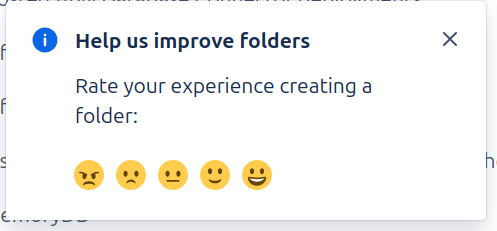Posts
1919Following
HiddenFollowers
Hidden"You do you" is Eu-gen-ics.
beadsland@disabled.socialSitting with fact that fourth estate's depiction of microplastics is typically a photograph of a (white) hand or finger dusted with festive or mostly bright white specks, even geometric pieces of gaily colored confetti.
See news coverage of recent discovery of microplastics in human brains, as an example.
Meanwhile, the vast majority (all but two thirds) of microplastics are tire rubber dust.
Imagine if articles about microplastics opened with hands full of dark, misshapen, particulate muck.
are your logs boring?
try: randomly generated marine line
🐠 https://gist.github.com/fasterthanlime/bcbc16c936bd28e3a117a505ebac8b01
Alpha Chen
alpha@josephholsten I hope it was good news and not bad… 🤞
Either way though, terrible form.
Dana Fried
tess@mastodon.socialThere are three arguments around regulation that I think we need to dispense with entirely. When a new rule or regulation is proposed, industry tends to push back with one of:
1. It will stifle innovation
2. It will destroy our business model
3. It will cost jobs
These are all nonsense and should be challenged as such.
Ricki Yasha Tarr
RickiTarr@beige.partyThe USPS isn't "losing money", it's providing a service, that's the job of the government. Conservatives never talk about how much money Defense loses, and entire aircraft carriers just "disappear".
Matthew Martin
mistersql@mastodon.socialThe story of King Midas is a cautionary tale about adding the `async` keyword to a code base.
rixx
rixx@chaos.socialWe live in a world where @iss_whizz exists and I think that is beautiful.
mei
mei@donotsta.reelect me as Unicode consortium president! I will:
- mandate sitelen pona support in modern operating systems
- implement xkcd’s non-breaking snake proposal
- assign codepoints to the neocats, with ZWJ sequences for the hugging variants to allow for combinatorial variation
- introduce full configurability of the number of eyes in your cyryllic multiocular O
- remove the redundancy between the flags of Poland and Indonesia, factoring it out into a universal “rotate by 180 degrees” codepoint that will definitely not unleash chaos unto the world
the future is in our grasp! vote mei today!
Taylor Lorenz
taylorlorenz@mastodon.social“We and our colleagues at other journalist-owned publications have shown that small businesses owned by the people doing the work can be successful not just editorially, but can also be financially sustainable.” https://www.404media.co/what-we-learned-in-our-first-year-of-404-media/
Passenger
passenger@kolektiva.socialI think we need a word for "doing unnecessary and time-filling tasks for therapeutic reasons, in ways that help to ease us into doing productive work."
Shampooing the yak, perhaps?
Terri K O 🍁
terri@social.afront.orgI really love this description of a retracted study: not only does it explain what was retracted (turns out men don't generally divorce their sick wives), but also it covers what the error was (a coding problem treated people who left the study as divorced) how it all went down (someone tried to replicate, asked for data and didn't get the same analysis. Contacted the authors and they were horrified and immediately worked to retract).
It's a really nice story of why replication matters and how to be good at science. This is how I was taught science should work, but I rarely come across such good retrospectives.
Laura Savino
savinola@mastodon.socialI put my entire heart into this keynote delivery at @ACCUConf ❤️
Through the lens of legacy C++ software, it's got stories and strategies for overcoming "clever" code that makes you feel dumb, a research-backed overview of burnout, a poetic interlude, a scheme to quash stage fright, and above all a call to balance the pride in fixing things with the necessity of letting go.
Pffff...
1HommeAzerty@mamot.frReposted from a bot and added alt text. (Edit: fixed typo in alt.)
Mx. Aria Stewart
aredridel@kolektiva.socialShow content
Re https://mastodon.social/@mcc/112998046292372137
It's fascinating how much our political parties are policy-agile. They really don't stand for much, and it's very much the Overton window that defines them. They're no more meaningful than "the left one" and "the right one”.
This is a byproduct of a two party first past the post system, and has led to some really interesting phenomena, not the least of which is the ‘Southern Strategy', where Republicans realized they were situated to take advantage of racism in the US and go after white, conservative, racist voters in the 60s and cement being the 'right' party, and win doing it. The parties flip-flopped on who represented those racist white voters.
And in so doing we entered the beginning of our modern political era, further cemented by Nixon, then by Reagan in the 80s, running on a racist, conservative platform.
But in the end: the parties go where the voters go. This is one reason the far left "don't vote it only encourages them" moves the country right: if they can't be courted as voters, then the parties will shift policy and positioning to claim other territory.
Don't get me wrong, voting is a late in the game choice, mostly a confirmation of other work done. However, those of us on the further parts of the left should not ignore it: real change does happen at the ballot box, mostly in the form of delivering successive defeats to parties courting the wrong groups. We’re in such an election now.
Let's salt the earth that grows political racism. It's a resilient weed but that'll be a blow to it.
We’re frustrated by the lack of platform from our Democratic candidates, and by the Republican party's candidates constantly favoring power-hoarding over any policy. This is why: in this two party system, that's what works. Parties will shift broad strokes policy to fit the available voters.
We can change it but only through massive organizing, education and perhaps even structural rearrangement. (Ranked choice voting would help! Eliminating the electoral college would help a bit!)
Beyond that, there's choosing 'insider' vs ‘outsider' politicians. We've historically not done well with outsiders: the right has more to immediately gain from upsetting the system than the left. The left is constrained by wanting the world to, y'know, actually function. We also want justice, which is why it's always such a bitter pill to swallow candidate after candidate who is happy to tighten the borders and make it harder to claim asylum. This is going to become a political flashpoint in the next 20 years, but it's not the flashpoint on this election. (maybe barely: the Uncommitted movement is trying. And somewhat succeeding. If that builds instead of dissipates over the next years, we might see that become a battleground.)
On the other hand, insider politicians do maintain the status quo better, for better _and_ worse. The Democratic party has learned a few lessons about leaning into it too hard though, and I suspect will need to continue to learn. Bernie Sanders was not an isolated phenomenon, however much he's a unique player. Insider politics dominating doesn't play well, and the Republicans exploit it, and Trump _really_ exploits it. Too much insider politics leads to populism instead of democracy.
Charlie Stross
cstross@wandering.shopA concept in economics that doesn't get nearly enough airtime is: the diminishing marginal utility of money. Succinctly: the more units of money you've got, the less adding another such unit does—the added value of any one unit drops very steeply.
Over about $200M (personal orbital tourism? Megayacht? Your own tropical island?) there are no more experiences/luxuries that money can buy you. (And over $50M there are very few—bizjet, luxury mansion.)
https://mastodo.neoliber.al/@Legit_Spaghetti/112996254337297288





